What Is Hypothyroidism in Dogs?
Hypothyroidism in dogs is a condition that affects the thyroid gland. The thyroid is the part of a canine’s body that is responsible for creating hormones that maintain a balanced calorie-burning level, ensure the immune system remains healthy, and repair tissue. This gland can be found in a canine’s neck and is made up of two lobes (one on either side of the trachea). The thyroid gland is controlled by the pituitary gland, which is situated at the bottom of the brain.
The dog’s thyroid gland is important because it regulates a canine’s metabolic rate. If a dog has hypothyroidism, then it has an underactive thyroid gland. In this situation, the dog’s metabolism slows down. Conversely, if a dog has hyperthyroidism, then the thyroid gland will be overactive. In this instance, the metabolism of the dog will speed up.
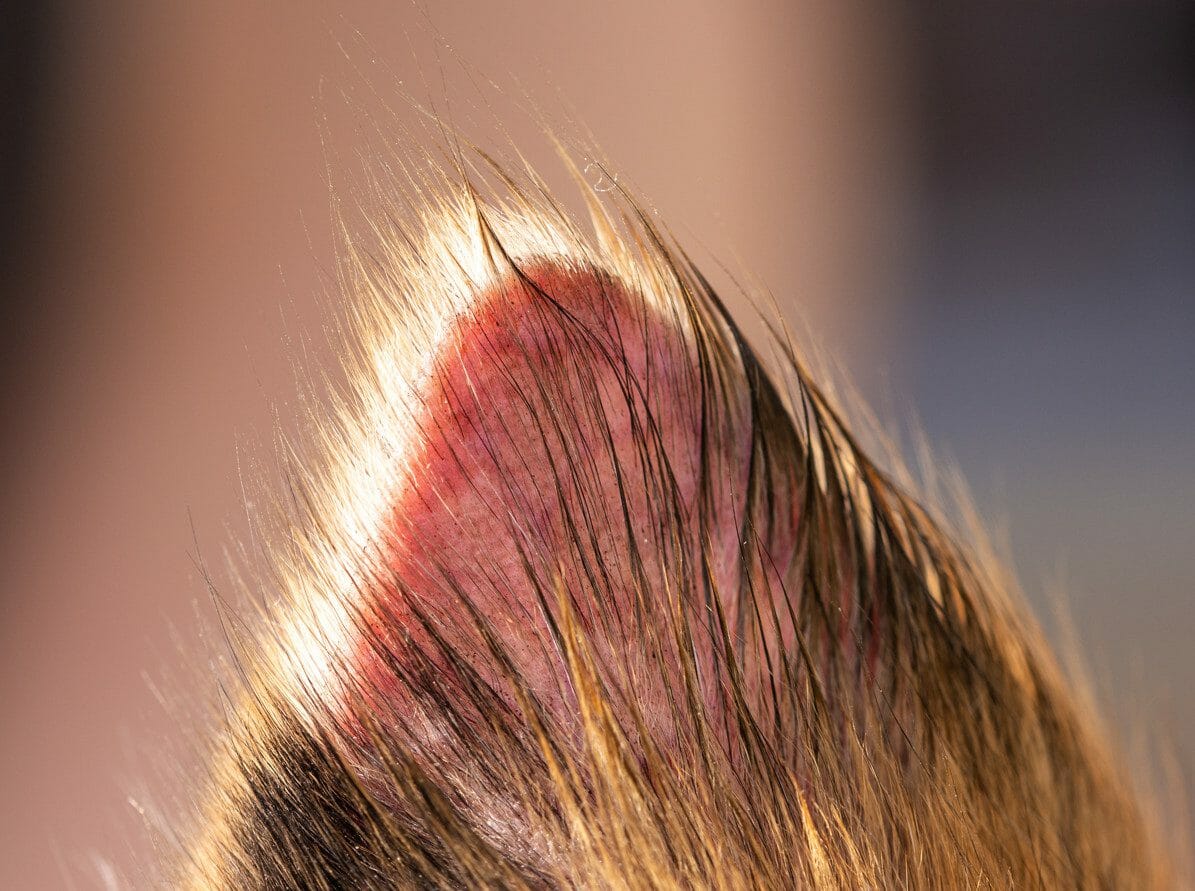
Hypothyroidism in Dogs Symptoms
As the dog’s metabolism slows, most of its organs will be affected. If several symptoms of this following dog hypothyroidism symptoms checklist are present, visit a veterinarian for a full assessment and diagnosis.
Here are some of the signs of hypothyroidism in dogs.
- Weight gain without any changes to diet or appetite
- Lethargy and a reluctance to exercise
- Dark pigmentation of the skin
- Intolerance of the cold
- Balding coat and excessive shedding
- Lack of hair regrowth following grooming
- Dry and dull hair
- Decreased heart rate
- High blood cholesterol levels
- Greater susceptibility to skin and ear infections
In some cases, canines may also experience:
- Lameness, poor coordination, and head tilt brought about by abnormal nerve function
- Thickened facial skin that may leave the dog with a “tragic expression”
- Poor tear production due to keratoconjunctivitis sicca (KCS)
- Deposits of fat in the corneas of the eye
- Low libido in intact males
Symptoms of hypothyroidism in female dogs include infertility, miscarriage, and lack of heat.
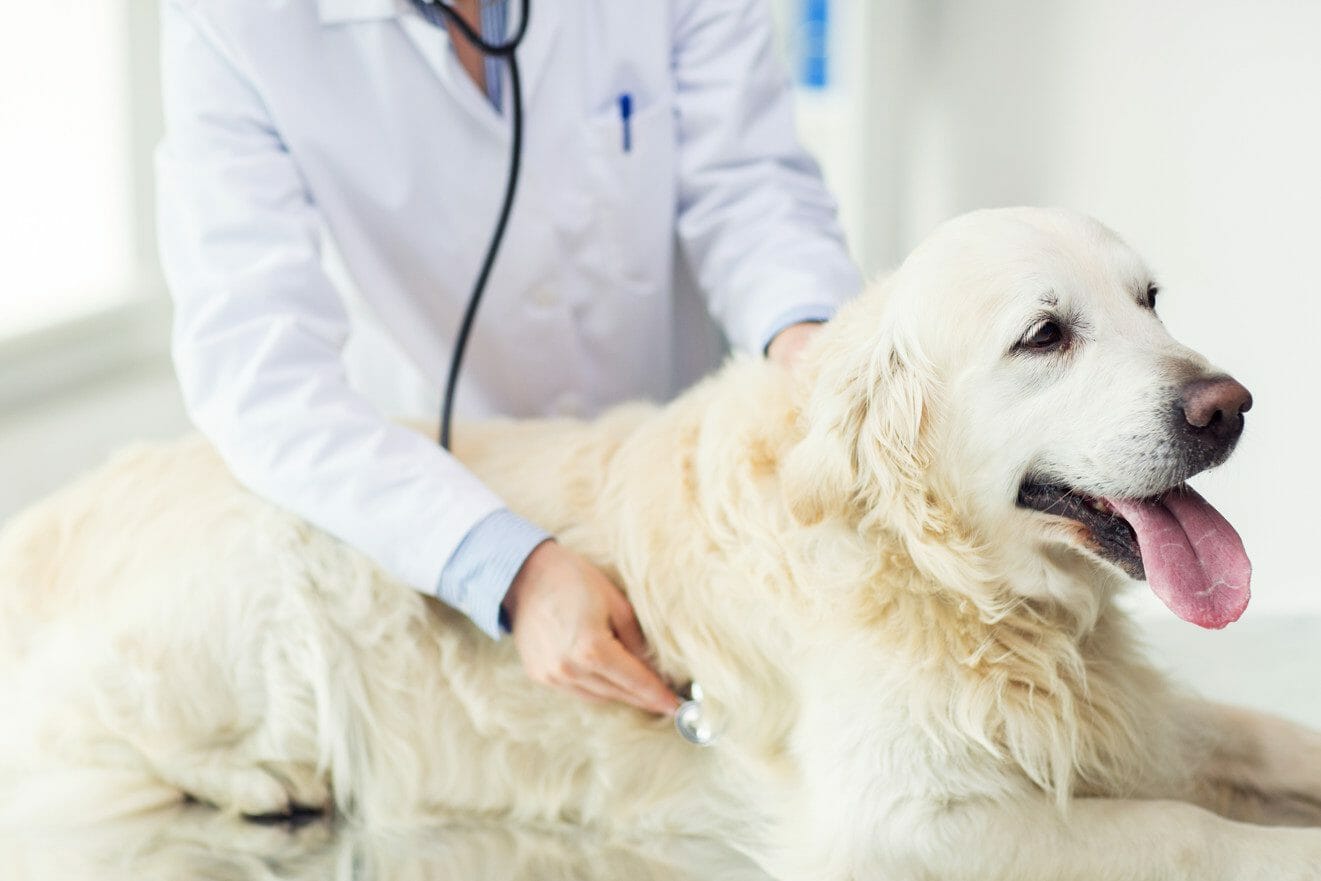
What Causes Hypothyroidism in Dogs?
Hypothyroidism is a common disease of the endocrine system that affects all breeds of dogs, although some breeds are more susceptible than others. There are two diseases that may cause hypothyroidism in dogs:
- Lymphocytic thyroiditis. In this common cause, the dog’s immune system will conclude that the thyroid gland is foreign or abnormal and will attack it. Genetics may play a part in this disease.
- Idiopathic thyroid gland atrophy. If a dog has this disease, the normal tissue of the thyroid is replaced by fat.
More than 95% of cases of hypothyroidism in dogs are caused by one of these two diseases. The remaining 5% is brought on by either another type of rare disease or cancer of the thyroid gland.
Diagnosing Hypothyroidism in Dogs
To diagnose hypothyroidism in dogs, a screening test will be carried out to measure the levels of the main thyroid hormone present in the blood. If there are low levels of total thyroxin, along with clinical symptoms, the diagnosis will be hypothyroidism.
A definitive diagnosis will then be required. To achieve this, the veterinarian will perform a free T4 by equilibrium dialysis (free T4 by ED) or a thyroid panel. This will look at the levels of different forms of the hormone thyroxin. Again, if the results show a low level of these hormones, then the dog has an underactive thyroid gland.
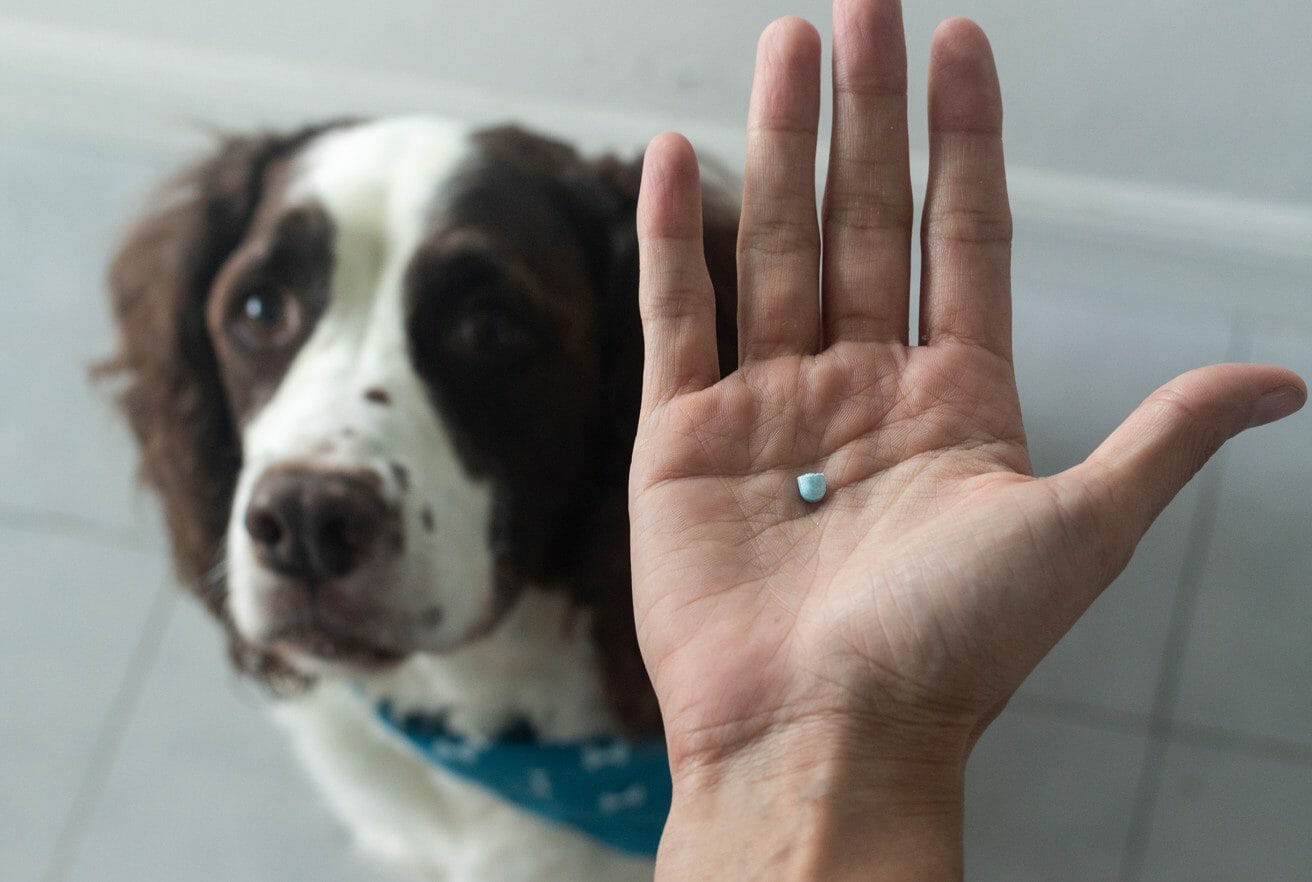
Hypothyroidism in Dogs Treatment
Hypothyroidism is a treatable condition. However, it cannot be cured. Owners looking into how to treat hypothyroidism in dogs should be aware that they will need to administer a thyroid replacement hormone for the remainder of the dog’s life.
Hypothyroidism in dogs’ medication is typically levothyroxine—an oral synthetic thyroid hormone replacement. The exact dose will be specific to the dog. Over time, the dog may become tolerant of the drug, which means the dosage will need to be reviewed regularly by a veterinarian.
If a dog has a dose of levothyroxine that is too high, it may exhibit signs of hyperthyroidism as well as some of the symptoms listed below.
- Weight loss
- Increased water consumption
- Lack of sleep
- Hyperactivity
Due to the importance of the thyroid gland, this condition needs to be carefully managed. If left untreated, the condition will have a serious impact on the dog’s quality of life.
Many owners will look for natural remedies for hypothyroidism in dogs. However, medication is the best course of action for preserving the health of the dog. There is no home remedy for hypothyroidism in dogs that has been proven effective.
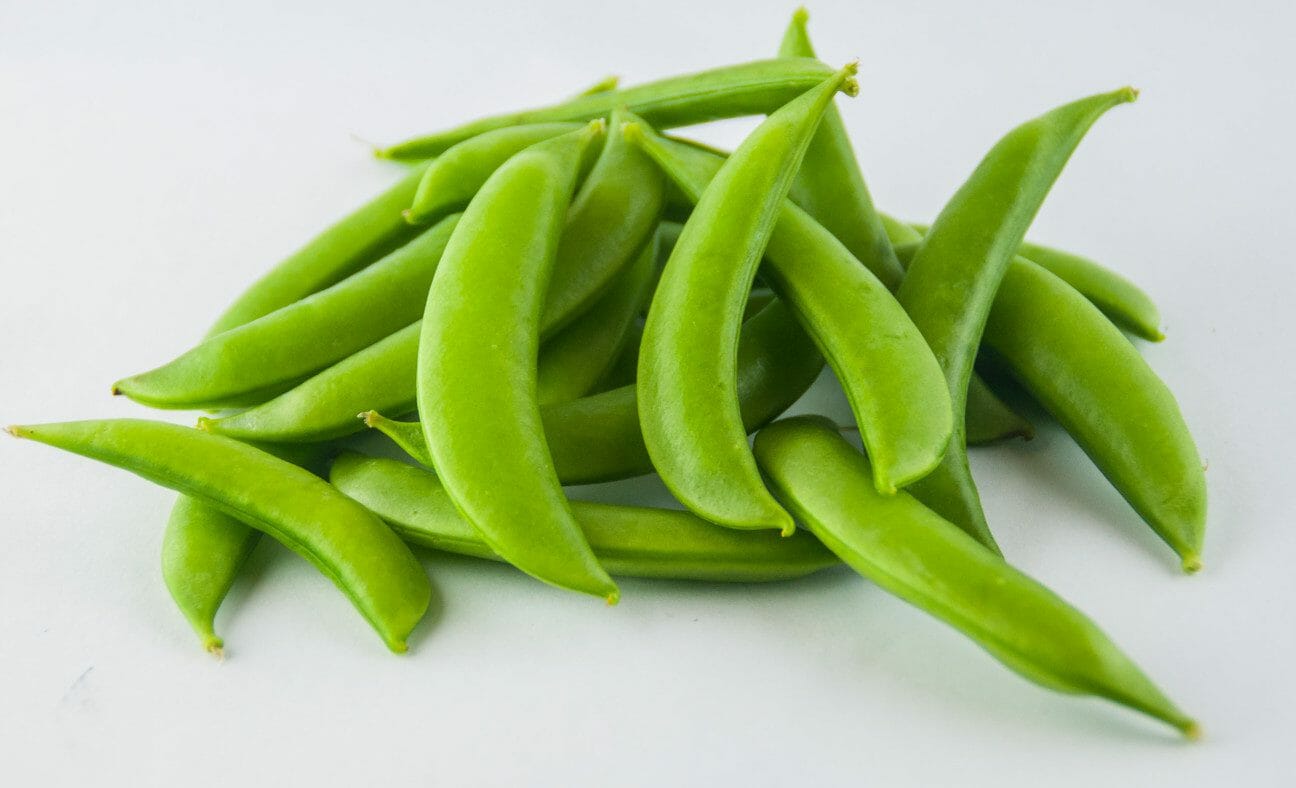
What Is the Best Dog Food for Hypothyroidism?
Alongside hormone replacement medication, when managing hypothyroidism in dogs, diet is important. A dog needs to have the correct balance of vitamins, minerals, iodine, probiotics, antioxidants, amino acids, fats, proteins, and carbohydrates.
In many cases, providing homemade food may be a good option. Fresh vegetables can aid thyroid function so adding small amounts of the ones listed below may be helpful.
- Green beans
- Broccoli
- Carrots
- Brussel sprouts (could cause flatulence)
- Mushrooms (NOT wild mushrooms, which are toxic)
- Beets
- Celery
- Lettuce
- Asparagus (cook first to prevent digestive issues)
Talk with a veterinarian for recommendations before altering a dog’s diet. A veterinarian may also recommend specially formulated prescription dog food with reduced fat content. Commercial dry foods should be avoided, and some veterinarians may also suggest avoiding raw food diets.
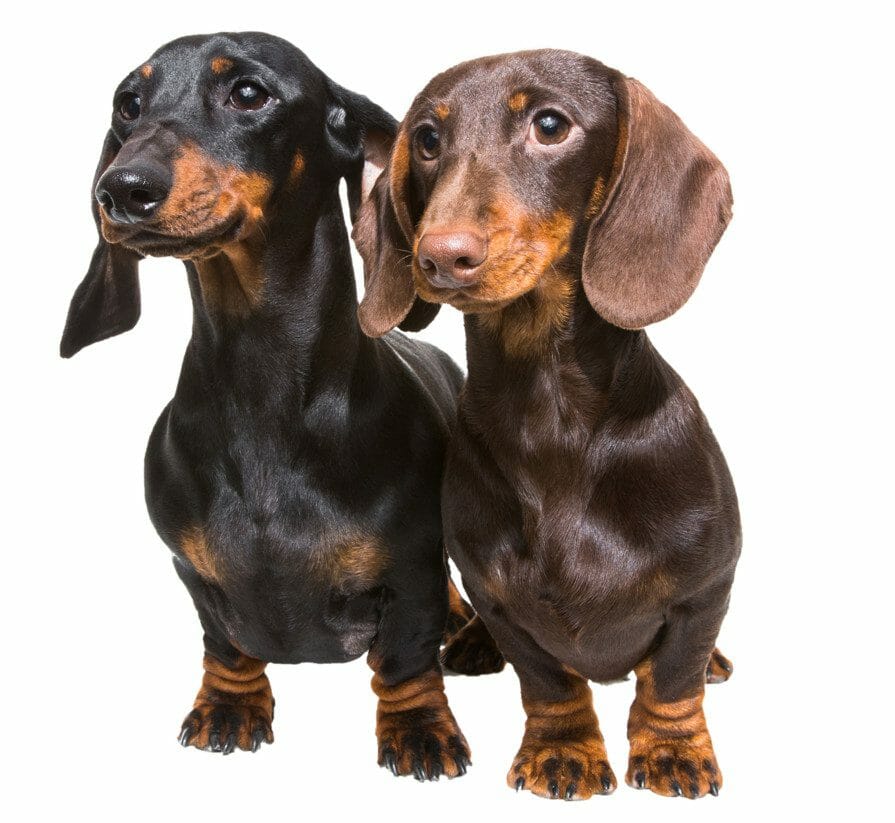
What Dog Breeds Are Prone to Hypothyroidism?
Although hypothyroidism affects all dogs, certain breeds are more susceptible than others. Here are some of the dog breeds prone to hypothyroidism:
- Golden Retrievers
- Labrador Retrievers
- Irish Setters
- Boxers
- Dachshunds
- Cocker Spaniels
- Doberman Pinschers
- Old English Sheepdogs
- Great Danes
The disease generally affects medium to large dogs during middle age (between the ages of 4 and 10.) Although veterinarians are unsure of the reason, neutered and spayed canines have a greater risk of developing the condition.
Can a Dog Die from Hypothyroidism?
If a dog is promptly provided with the right treatment, there is no reason why a long and healthy life will not be possible. Regular appointments should be made with a veterinarian so that any changes can be identified early, and medication levels can be monitored. If the condition is not addressed, it will lead to a worsening of symptoms. Eventually, there will be severe complications relating to the condition and these may lead to the dog’s death.



